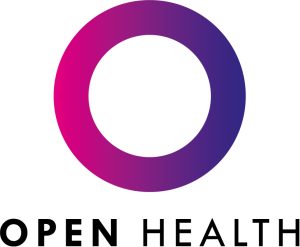Delivering Medical Communications when travel is restricted: solving the 6 most common problems
March 11, 2020 |
Louise Carrington and Gemma Allen, OPEN Health
With recent global health events impacting our personal and professional lives, our clients need to make complex and difficult decisions about their medical communications activities. With travel being increasingly restricted and many medical conferences across the world being postponed, many teams are re-evaluating their 2020 plans and looking for alternatives to face-to-face activities in order to continue to deliver.
At OPEN Health, we have been delivering virtual, interactive events for many years, from advisory boards to workshops to large speaker-led meetings. Whether via bespoke software created by our expert in-house digital team, or other tried-and-tested industry-leading solutions, we believe that ‘in person’ isn’t the only way. We know that it is not just the digital solution that makes a meeting effective; we provide our clients with the complete package including agenda development, expert speaker engagement, scientific content development and robust, compliant process management.
In an ever-changing environment, we felt it would be useful to answer the most frequent questions we receive around virtual event solutions.
1. WHAT CAN I DO INSTEAD OF A FACE-TO-FACE ADVISORY BOARD?
We work with our clients to understand the objectives of the meeting to propose the best solution. We often recommend a live virtual meeting followed by a virtual discussion board or collaborative document development area to enable longer term engagement with advisors beyond the event itself. We recommend a solution that fits your needs, budget and timelines, considering everything from off-the-shelf software provided by trusted third parties through to a fully bespoke platform. Read our top tips on making the most of virtual advisory boards here.
2. HOW CAN I TRAIN MY TEAM VIRTUALLY WHEN THEY ARE BASED IN MULTIPLE LOCATIONS?
Video conferences and webinars are a typical format for learning, whether for internal or external audiences. With options to submit questions, run live polling, complete knowledge assessments, facilitate live Q&A, and use both live and/or pre-recorded video, there are a number of ways to provide online training. Virtual reality can also enhance the learning environment and provide a more immersive experience.
3. I WANT TO RUN AN INTERACTIVE WORKSHOP – IS THIS POSSIBLE VIRTUALLY?
Yes! Your imagination is the limit! Well almost. Our teams frequently engage in the virtual space for team brainstorming meetings and we can help you to do the same. Using existing commercially available platforms commonly used in the tech world, we can bring brainstorms and interactive workshops to life, whilst achieving the collaborative, creative thinking that is found face-to-face.
4. WHAT CAN MY FIELD-BASED TEAMS DO, IF FACE-TO-FACE VISITS WITH HCPS AREN’T POSSIBLE?
As experts in field force training and with Veeva certified developers, we can support your field teams in moving their conversations from the doctor’s office to a virtual environment. If your company is not currently using the Veeva platform, then we also have a choice of standalone platforms we can use to support your teams to engage with their customers using the most appropriate technology for your business.
5. THE KEY CONFERENCE FOR OUR DISEASE AREA, WHERE WE WERE GOING TO SHARE OUR LATEST DATA AND CONNECT WITH HCPS, HAS BEEN POSTPONED – WHAT NOW?
Peer-to-peer communication has never been more important in driving improvements in clinical practice. Whilst conferences are a key element to this, via networking, data dissemination, educational symposia, and opportunities to meet with experts, aspects of this can be done as well, or even better, through digital solutions. We can support you to establish an innovative and interactive space, bringing together a global community; a solution that will continue to add value over and above a single event. This format, known as a virtual congress, allows both delegates and those who couldn’t attend a conference to connect with experts and their peers. Features such as global-to-local tailored content, immersive sessions and personalised, bite-sized micro-learning facilitate high-quality peer exchange on a broad scale.
6. WE HAVE NEEDED TO CANCEL AN EDUCATIONAL MEETING FOR HEALTHCARE PROFESSIONALS, BUT THERE IS A REAL UNMET EDUCATIONAL NEED IN THIS THERAPY AREA. I WANT TO CONTINUE TO PROVIDE HIGH-QUALITY EDUCATION WITHOUT DELAY. WHAT DO YOU SUGGEST?
For many years, standalone educational events have been commonplace in medical communications programmes. Traditionally varying from large 300+ attendee events to small meet-the-expert or case discussion forums, the industry has been moving in the direction of organising more virtual engagements that provide the same high-quality, and importantly measurable, education. OPEN Health creates educational resource websites or hubs to host a variety of content to engage HCPs both live and on-demand: eLearning modules, expert presentations, scientific highlights, infographics and more. Standalone events can easily be translated into webinars, whether one-off, as a series or as part of a ‘hub and spoke’ programme taking global experts to local events. By providing education in a variety of virtual formats, we can engage a wider audience and demonstrate the true impact of our education.
If you can relate to any of these scenarios, or are interested in hearing how OPEN Health can help to keep your medical communications meetings moving forwards in a virtual world, please get in touch with:
Louise Carrington, Client Partnerships Director
+44 (0) 7468 714 548,
This content was provided by OPEN Health





